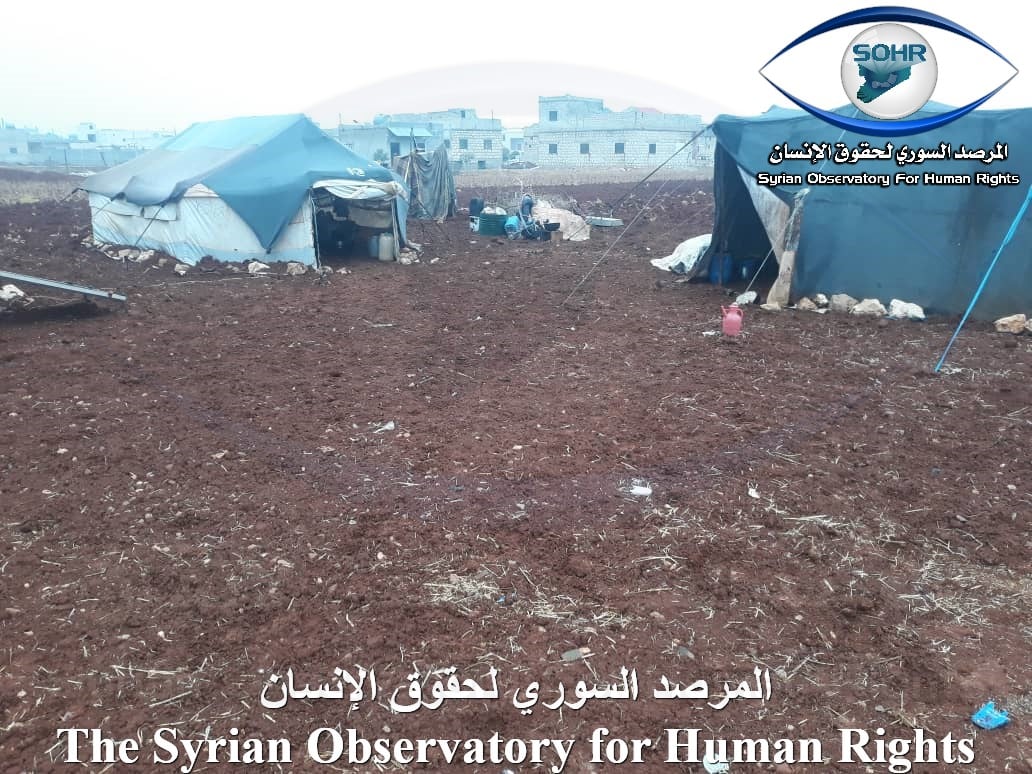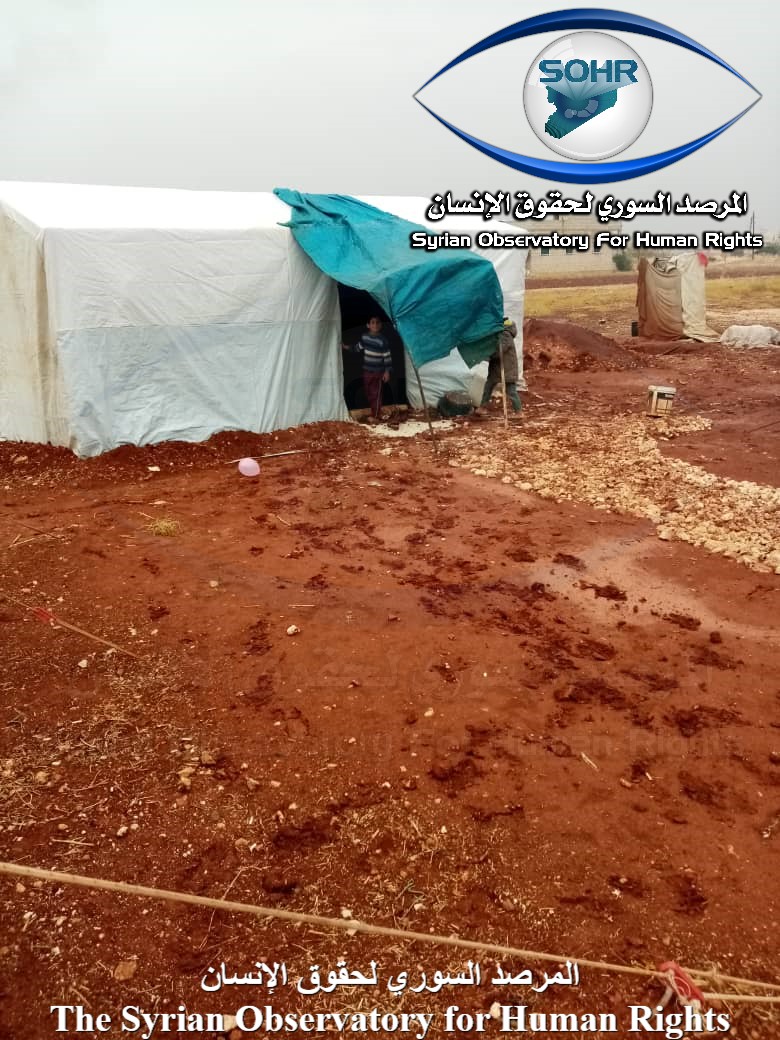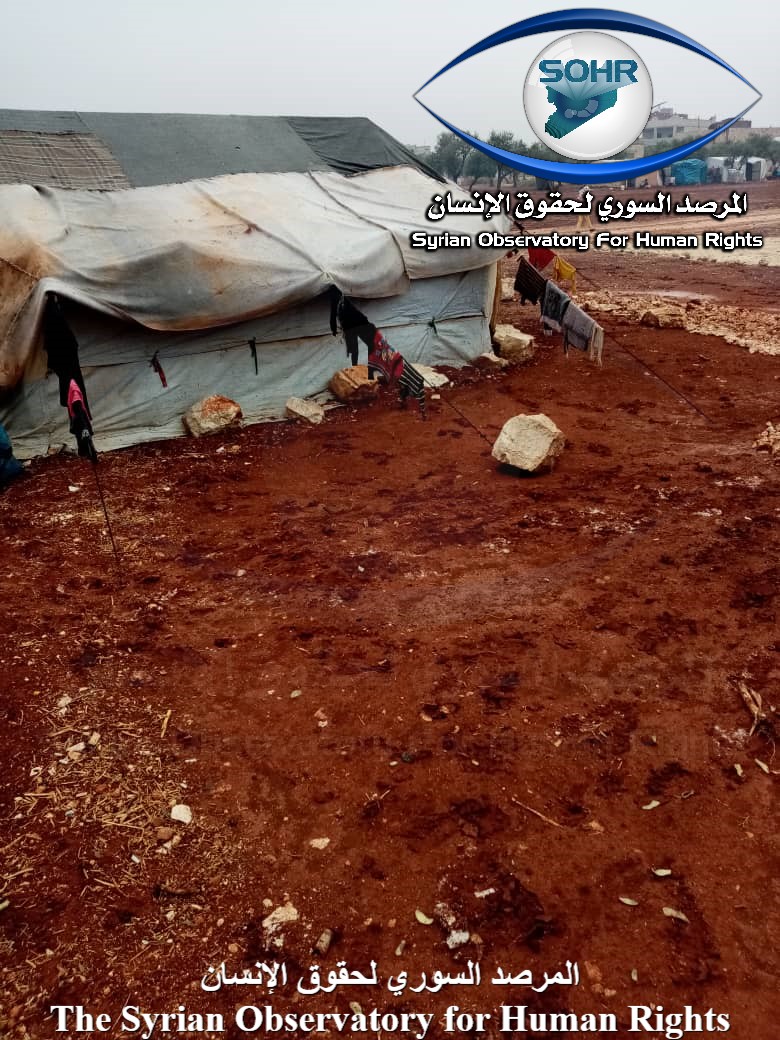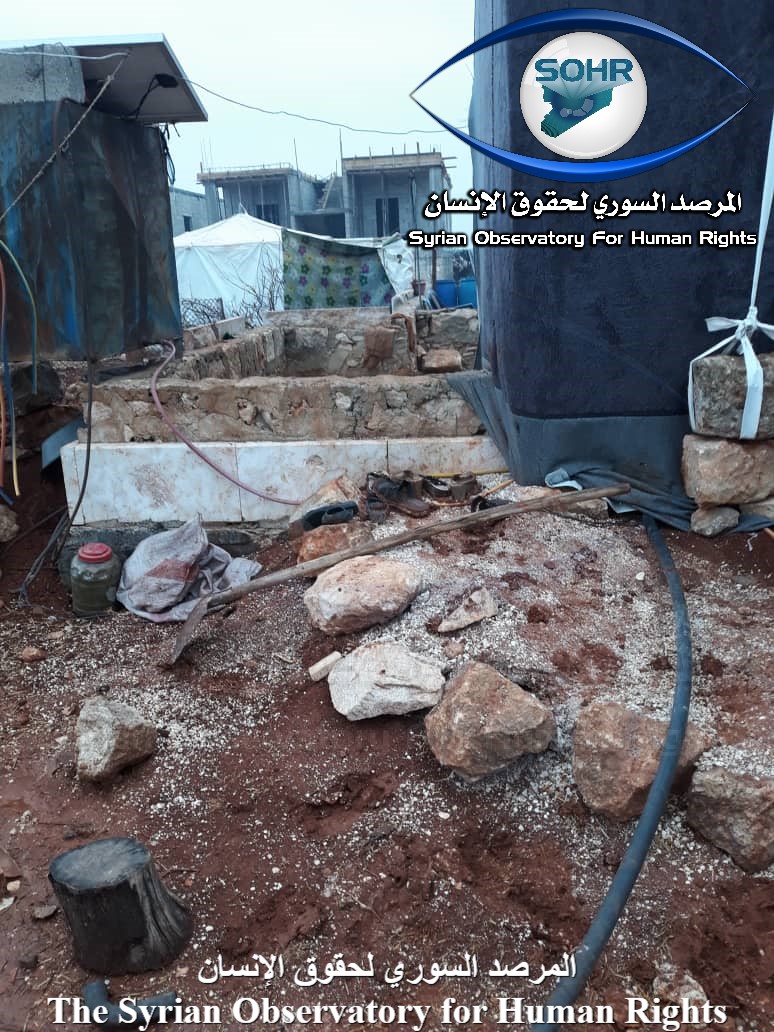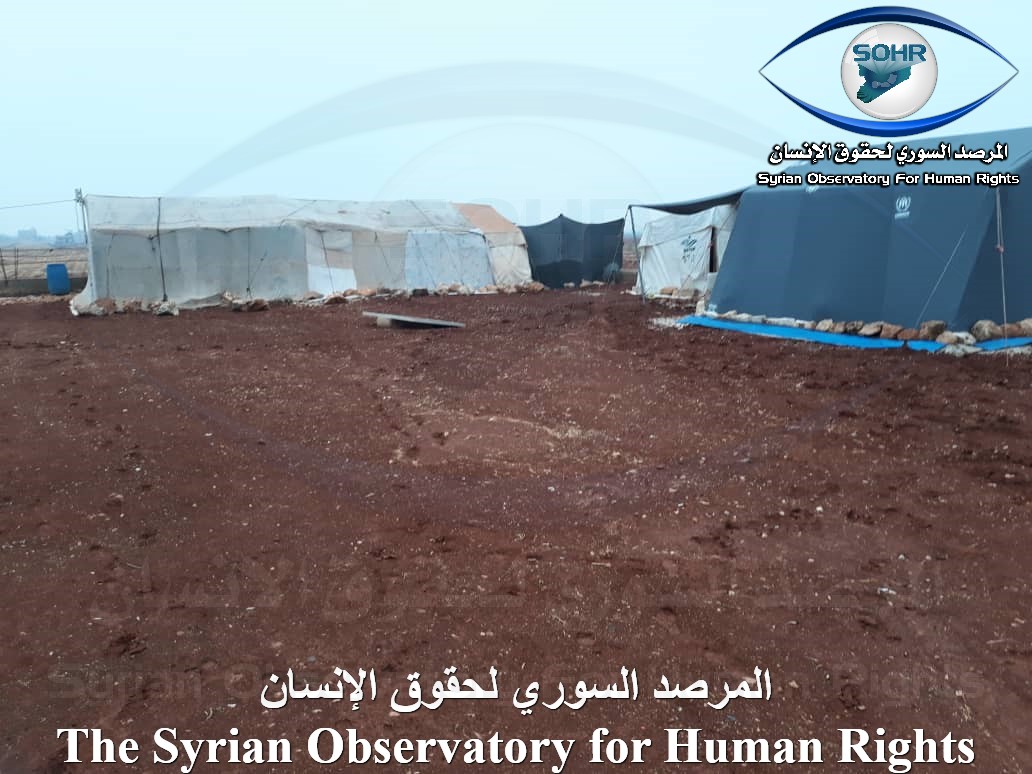140 families live in a deserving service and humanitarian situation in Sukayk camp in the northern countryside of Idlib
The suffering of the displacement camps in the northwest of Syria begins in the winter of each year, where the heavy rains flood most of the camps and displace the inhabitants, in the light of a very poor service situation, which increases the drowning situations and soil erosion, where camps suffer from the lack of safety controls and the lack of building their tents in a way that helps in resisting the rainstorms, and according to what the Syrian Observatory monitored, most of the tents are years old and have not been changed for several years, also floors of the camp are not prepared in a proper way, where most of them are agricultural land on which the camps have been built, and one of these camps is Sukayk Camp, located in Killi town in the northern countryside of Idlib, and in the first rainstorms of this year’s winter, it drowned and its tents were severely damaged, which caused a tragic situation for the camp’s residents.
One of the people in charge of the camp told the Syrian Observatory: “Sukayk camp is located on the outskirts of Killi town in the northern countryside of Idlib, it is about 300 meters away of the town, and the camp is inhabited by about 140 families, these families are displaced from several areas in the northern and western countryside of Hama, and the southern countryside of Idlib, and the majority of them are women, children, and elderly, the camp suffers from a bad service conditions, where it is located on a dirt agricultural land; as soon as the rainwater reaches, it became muddy, and the rains flooded several tents.”
He added: “the camp was built with individual efforts by some of the displaced people, who were displaced during the period of the undergoing events, and the landowner allowed us to repair it and make it suitable for the construction of tents, however, there is no material possibility to do so, where most of the displaced people are living under the poverty line and are unable to repair grounds of the camp.
The service level of this camp began to unfold since the morning of Wednesday, the 27th of November 2019, when the heavy rains caused damage to a large proportion of the tents, which are rudimentary tents built using blankets and thick nylon fabric, because the displaced people are unable to buy ready prefabricated tents.”
“More than 90% of the camp’s residents have not received any kind of assistance since their displacement, and no humanitarian organization has provided the camp with any kind of humanitarian assistance, except for one organization that continuously supplies families with drinking water. And because ground of the cam becomes muddy after being hit by heavy rains, cars tried to enter the camp, but they were able to provide only several families with water. This is the situation of residents of the camp, where it is difficult to take the roads leading to the outside after being drowned; because its muddy roads become very difficult, also, there is a significant shortage of other supplies, such as food and medical supplies, and in addition to that; most of people are unable to buy heating materials, because of the high prices, where the price of one liter of gasoline is more than 550 Syrian pounds, and the ton of firewood in 80000 Syrian pounds.”
The sources continued: “the camp is also suffering from a severe shortage of tents, and most families live with other families of their relatives in one tent all together, and we fear that the living situation in the camp may deteriorate even more, as winter comes and the rainstorms start, also radical solutions must be found with effective assistance from the humanitarian organizations and the responsible parties.”
The Syrian Observatory appeals to all humanitarian organizations in the Syrian north, to help and assist residents of the camps as winter starts, and the Syrian Observatory for Human Rights warns of the deteriorating living conditions of residents of the camp, in a way that will lead to a new humanitarian catastrophe; unless the concerned organizations move to help these displaced people.





